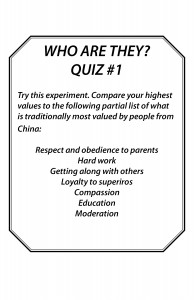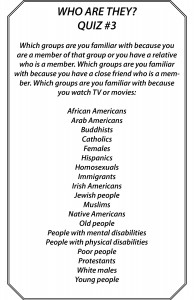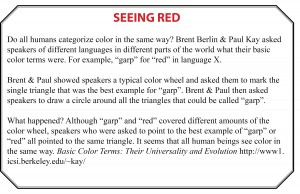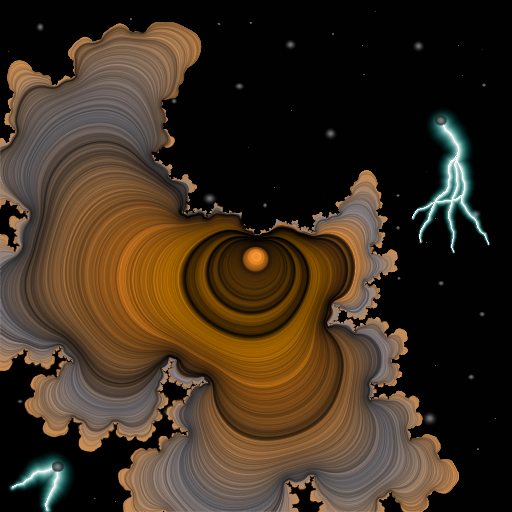What makes us all the same?
Are we the same because we work for the same organization or go to the same school? Are we the same because we speak the same language or live in the same neighborhood? Are we the same because we listen to the same music or eat at the same restaurants?
These questions may seem trivial, but as our society becomes more diverse the ways we choose to divide ourselves from others and who we include and exclude from our groups become important issues.
People do, in fact, choose to be with those who are like them, it’s always been that way. People feel more comfortable with those who are “similar” and tend to shy away from others who are “different”. Perhaps this fear of others who are different is well founded, after all, children are taught to stay away from”strangers”.
How is it that people decide who is like them?
Is someone “similar” to us because they are the same gender, age, sexual orientation, ethnicity, or because they have similar physical abilities or family background? Do we feel more comfortable with someone who has the same occupation, income, military experience, spiritual beliefs, or education level? Are there other ways of grouping together besides those listed above? Those who use ipads and those who don’t?
Do people from different backgrounds and cultures, who speak different languages, see the world in the same way? Do they have similar values? Test yourself with two short quizzes designed to give you some idea of how we are the same.
 Who are they? How many categories did you choose in Quiz #2? If you chose them all, you were right! All of the categories listed are practices found in every known group of people on the earth.
Who are they? How many categories did you choose in Quiz #2? If you chose them all, you were right! All of the categories listed are practices found in every known group of people on the earth.
Which groups do you identify with in Quiz #3? Which groups do you need to learn more about?
How would you be different had you grown up in a different place or time? How might you be the same?
When individuals are divided by personality traits, similarities may go far beyond cultural boundaries. For example, a female caterer from Brooklyn might discover that she has more in common with a Chinese businessman than her locker partner at the gym or a friend at work. Personality tests, like the Myers-Briggs Indicator (MBTI) sometimes used by government and business to determine if a person is suited to a particular kind of job, can group people in ways outside of the boundaries of both primary dimensions like age and sex, and secondary dimensions like education and religion.
What makes us all the same? Perhaps taking the time to get to know others better— others that we may have assumed were different— and discovering the things we have in common will help us to see ourselves more clearly. Certainly, we all have something in common, we are all the same in our humanity.










+ There are no comments
Add yours